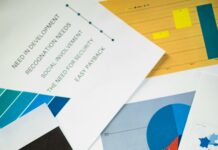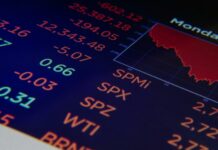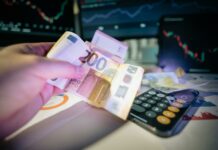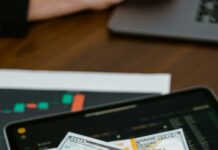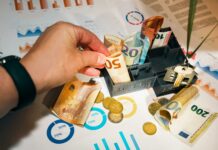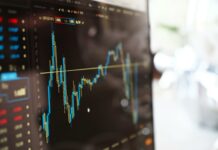If you’ve ever wondered how to build confidence in Forex trading, you’re not alone. Many beginners and even experienced traders struggle with self-doubt and hesitation when navigating the fast-paced world of foreign exchange markets. This article dives deep into proven strategies to succeed in Forex, unlocking powerful techniques that can boost your trading mindset and sharpen your decision-making skills. Curious about what separates confident Forex traders from the rest? You’re about to find out!
Building confidence in Forex is more than just luck or intuition; it’s about mastering key habits, understanding market behavior, and applying tested methods that consistently deliver results. Without the right mindset, even the best strategies can fail. That’s why this guide focuses on how to build confidence in Forex using actionable tips like risk management, psychological resilience, and technical analysis mastery—all designed to elevate your trading journey. Ever felt overwhelmed by the complexity of Forex charts or scared you might lose your investment? You’re going to learn how to turn those fears into your strongest assets.
In today’s competitive Forex environment, staying ahead means developing unwavering confidence in your trades. Whether you’re a newbie trying to break into the market or an intermediate trader aiming for higher profits, these confidence-building Forex techniques will empower you to make smarter, bolder moves. Ready to transform your approach and become a Forex trader who thrives under pressure? Keep reading and discover exactly what it takes to succeed in the thrilling world of Forex trading!
7 Proven Strategies to Build Unshakable Confidence in Forex Trading
Trading forex is a challenging game, and many beginners or even experienced traders struggle with confidence. Without it, making decisions become harder and emotional trading often takes over. So how to build confidence in forex trading? It’s not just about luck or guessing right; it’s a skill that can be developed with the right approach and mindset. Below, we discuss 7 proven strategies to build unshakable confidence in forex trading, helping you to succeed and stay calm even when markets are volatile.
Understand the Basics Deeply
Confidence starts with knowledge. Many traders jump into the forex market without fully understanding how it work or what factors influence currency movements. Learning the fundamentals gives you a solid ground to stand on.
- Study currency pairs, how they interact, and what drives their price changes.
- Learn about leverage, margin, and risk management.
- Familiarize yourself with economic indicators like GDP, unemployment rates, and interest rates, and how they affect forex.
For example, knowing that an interest rate hike usually strengthens a currency can help you predict market direction better. This kind of understanding replace guesswork with informed decisions, which naturally boost confidence.
Practice With Demo Accounts First
One of the worst mistakes traders do is to start trading live without practicing enough. Demo accounts allow you to trade with virtual money, so you can test strategies and get used to the trading platform without risking real cash.
- Use demo accounts for at least 3 to 6 months.
- Try different strategies and see which works best for your style.
- Analyze your trades and learn from mistakes without financial pain.
This practice period build muscle memory and confidence. You learn what works and what does not, so when you start live trading, you already have some experience behind you.
Set Realistic Goals and Expectations
Many traders lose confidence because they expect to become millionaires overnight. Forex trading is not a get-rich-quick scheme; it demands patience and realistic goal-setting.
- Set small, achievable targets like 1-2% monthly returns.
- Accept that losses are part of the game.
- Focus on consistent improvement rather than big wins.
By setting realistic expectations, you avoid frustration and maintain motivation. Confidence grows when you see yourself reaching milestones regularly, however small they might be.
Keep a Trading Journal
Keeping a detailed trading journal is a powerful tool to boost confidence. It help you track your trades, emotions, and thought processes.
A good trading journal includes:
Date | Currency Pair | Entry Price | Exit Price | Position Size | Profit/Loss | Reason for Trade | Emotional State
Review your journal weekly or monthly to identify patterns. For example, you may notice you often make mistakes when trading after news releases or when feeling stressed. Awareness like this help you improve and feel more in control.
Learn From Experienced Traders
Nobody become a confident trader in isolation. Learning from those who been there and done that can save you time and frustration.
- Follow reputable forex educators and analysts.
- Join trading communities or forums.
- Watch live trading sessions or webinars.
When you see how expert traders handle losses and wins, it normalize the ups and downs of trading. Hearing their stories and tips can reassure you that struggles are normal and confidence comes with time.
Develop a Solid Trading Plan and Stick to It
Random trading is the enemy of confidence. Without a plan, you guess and hope for the best. A solid trading plan defines your entry and exit rules, risk management, and goals.
Your plan should include:
- Which currency pairs to trade and why.
- Entry signals based on technical or fundamental analysis.
- Stop-loss and take-profit levels to manage risk.
- Maximum daily or weekly loss limits.
By following a plan, you reduce emotional trading and impulsive decisions. Confidence increase because you trust your system, not your feelings.
Manage Your Risks Wisely
Risk management is the backbone of long-term success and confidence in forex trading. The markets can be unpredictable, and protecting your capital is the best way to avoid panic.
Rules for good risk management:
- Never risk more than 1-2% of your account on a single trade.
- Use stop-loss orders to limit potential losses.
- Avoid over-leveraging, which can amplify losses.
- Diversify your trades across different pairs or timeframes.
When you know your losses are limited, you can trade more confidently and focus on your strategy, not on fear of blowing your account.
Quick Comparison: Confident vs Unconfident Trader
| Aspect | Confident Trader | Unconfident Trader |
|---|---|---|
| Decision Making | Based on analysis and plan | Impulsive and emotional |
| Reaction to Losses | Accepts as part of trading | Panics and often overtrades |
| Learning Approach | Reviews trades, seeks improvement | Ignores mistakes or blames others |
| Risk Management | Strict |
How to Overcome Fear and Boost Confidence in Forex for Consistent Profits
Navigating the world of forex trading can be a rollercoaster of emotions, especially for newcomers. Fear often creeps in, causing hesitation and missed opportunities, while lack of confidence can turn potential profits into losses. How to overcome fear and boost confidence in forex for consistent profits is a question that many traders ask but few fully understand how to address. Building confidence in forex trading isn’t some overnight miracle—it requires patience, practice, and a set of proven strategies that help you succeed over time.
Why Fear Holds Traders Back in Forex
Fear in forex trading usually comes from uncertainty and the risk of losing money. When traders feels unsure about their decisions, they tend to second guess themselves or avoid taking any action at all. This hesitation can lead to poor timing, missed entries, or exiting trades prematurely. Historically, markets have always been volatile, but the psychological aspect of trading often makes it look even more intimidating than it is.
Fear causes several common mistakes such as:
- Overtrading to compensate for losses
- Holding losing positions too long
- Avoiding trading altogether due to anxiety
- Ignoring trading plans and strategies
Recognizing that fear is a natural emotional response is the first step. Even the most experienced traders felt fear at some point. The difference is they learned to manage it.
How To Build Confidence in Forex: Proven Strategies To Succeed
Building confidence requires more than just wishing for it; it involves deliberate actions that trains your mind and skills. Here are some effective approaches that have helped many traders grow their confidence steadily.
Education and Continuous Learning
Forex markets are complex and ever-changing. The more you learn about market fundamentals, technical analysis, and trading psychology, the less intimidating it becomes. Use reputable sources, attend webinars, read books, and follow market news regularly. Remember, knowledge reduces fear.Practice with Demo Accounts
Before risking real money, practice trading on demo platforms. It allows you to experiment with different strategies without financial stress. Over time, seeing your simulated trades succeed or fail builds experience and comfort in market conditions.Develop a Trading Plan and Stick to It
A solid trading plan outlines your entry and exit rules, risk management, and goals. By following a consistent plan, your decisions are less driven by emotions and more by logic. Confidence comes when you trust your system and see it work over time.Start Small and Scale Gradually
Beginning with small trade sizes helps reduce psychological pressure. As you gain confidence and consistent profits, slowly increase your position sizes. This gradual approach prevents overwhelming fear that comes with risking large amounts.Keep a Trading Journal
Document every trade, including reasons for entry, outcome, and feelings during the trade. Reviewing your journal helps identify strengths and weaknesses. Seeing patterns of success builds confidence, while recognizing mistakes helps you improve without fear.Mindset and Emotional Control
Forex trading isn’t just about technical skills—it’s about controlling your emotions. Practice mindfulness, relaxation techniques, and positive self-talk. Accept losses as part of the game and focus on long-term consistency rather than individual wins or losses.
Comparing Confidence-Building Methods
| Method | Pros | Cons | Best For |
|---|---|---|---|
| Education and Learning | Builds strong foundation | Time-consuming | Beginners and intermediate |
| Demo Trading | Risk-free practice | May not fully replicate real emotions | All traders |
| Trading Plan Development | Adds discipline and consistency | Requires initial effort | Intermediate and advanced |
| Gradual Scaling | Reduces psychological stress | Slower capital growth | Risk-averse traders |
| Trading Journal | Provides insights and self-awareness | Needs consistent updating | All traders |
| Emotional Control Techniques | Improves mental resilience | Takes time to master | All traders |
Practical Examples of Confidence Growth in Forex
Consider Sarah, a new trader in New York who started trading forex with a demo account. Initially, she feared losing money and hesitated to enter trades. By spending two months practicing on a demo platform and studying market trends daily, her confidence grew. She developed a simple trading plan focusing on EUR/USD pairs and risk management limiting losses to 1% per trade. Gradually, Sarah moved to live trading with small amounts. Although she faced some losses, her journal helped her analyze mistakes and improve. Within six months, her confidence boosted, and she began to see consistent profits.
On the other hand, David, another trader, ignored education and jumped into live trading with large positions. Fear overwhelmed him after a few losing trades, causing impulsive decisions and heavy losses. His lack of preparation and absence of a plan undermined his confidence, leading him to quit trading altogether.
Tips To Overcome Fear Right Now
Step-by-Step Guide: Building Forex Trading Confidence from Beginner to Pro
Building confidence in forex trading can feel like climbing a mountain without a map. Many beginners jump into the forex market excited but soon find themselves overwhelmed by charts, indicators, and fast-moving prices. But confidence isn’t something you’re born with; it’s something you build, step by step. If you want to turn from a hesitant beginner to a pro trader, knowing how to build confidence in forex is essential. This article will guide you through proven strategies that help you succeed in the forex market, sharing practical tips, historical context, and clear examples to make your journey easier.
Why Confidence Matters in Forex Trading
Forex trading is different from many other types of investments because it requires quick decision-making under pressure. Confidence affects how you handle losses, stick to your plan, and avoid emotional mistakes. Without confidence, traders often second-guess themselves, leading to missed opportunities or rash decisions. In history, many successful traders stressed that confidence was more important than having the perfect system. For example, George Soros, one of the most famous forex traders, once said, “It’s not whether you’re right or wrong that’s important, but how much money you make when you’re right and how much you lose when you’re wrong.” That kind of mindset only comes from confident trading.
Step-by-Step Guide: Building Forex Trading Confidence
Start Small and Learn the Basics
Before risking real money, familiarize yourself with forex basics. Learn about currency pairs, pips, leverage, and how the market works. Use demo accounts offered by brokers to practice trading without any financial risk. This helps reduce fear and build familiarity. Don’t try to rush into complicated strategies if you don’t understand fundamental concepts first.Develop a Trading Plan and Stick to It
A clear trading plan includes your entry and exit rules, risk management, and goals. When you have a plan, you’re less likely to make impulsive decisions. It also give you a clear path to follow, which boost your confidence as you track your progress. Write down your rules and review them regularly. If your plan says to never risk more than 2% of your capital on a single trade, stick to it no matter what.Keep a Trading Journal
Recording every trade you make, including the reasons behind it and the outcome, helps you learn from mistakes and successes. Over time, you will see patterns in your behavior and results. This kind of self-awareness is key to confidence because you understand your strengths and weaknesses better. A journal also stops you from repeating errors, which often destroy confidence.Use Realistic Expectations
Forex trading is not a get-rich-quick scheme. Many new traders expect to make huge profits overnight, and when they don’t, they lose confidence fast. Instead, accept that losses are part of trading and focus on steady, consistent gains. Realistic goals keep your mindset balanced and prevent emotional rollercoasters.Start With Low Risk
Using lower leverage and smaller positions helps protect your capital and reduces stress. When your losses are small, it’s easier to stay calm and stick to your strategy. As your confidence grow, you can slowly increase your risk. Remember, confidence is built on experience, not just hope.Learn From Others, But Don’t Copy Blindly
Follow experienced traders and read forex news to stay informed. However, copying someone else’s trades without understanding why they do it can backfire. Build your own style by learning from experts but adapting to your personality and risk tolerance.
Proven Strategies To Succeed in Forex
- Risk Management: Always know how much you risk per trade and set stop-loss orders to limit losses. This protects your account and builds confidence by preventing catastrophic losses.
- Backtesting: Test your trading strategy on historical data before applying it live. This shows you if your method works and builds trust in your approach.
- Continuous Learning: Forex markets change all the time. Keep updating your knowledge through courses, news, and forums. Staying informed helps you feel prepared.
- Mindset Training: Practice meditation, visualization, or other mental exercises to stay focused and reduce fear or greed.
Comparison: Confident Traders vs. Unconfident Traders
| Aspect | Confident Trader | Unconfident Trader |
|---|---|---|
| Decision Making | Makes decisions quickly, based on plan | Hesitates and changes plans often |
| Risk Management | Uses strict risk rules | Takes large, impulsive risks |
| Reaction to Losses | Accepts losses as part of trading | Panics and overtrades |
| Learning Approach | Reviews mistakes and adapts | Ignores mistakes or blames market |
| Emotional Control | Keeps emotions in check | Lets fear or greed dictate actions |
This table show
Why Confidence Matters in Forex and How to Develop It Fast
Why Confidence Matters in Forex and How to Develop It Fast
In the fast-paced world of forex trading, confidence plays a role more significant than many beginners realize. You could have the best strategy, the sharpest analysis, and still lose money if you don’t believe in your own decisions. Confidence is not just about feeling good; it’s about trusting your skills enough to act decisively in a market that never sleeps. Many traders struggle because they hesitate, second-guess, or panic, leading to missed opportunities or bad trades. So, why confidence matters in forex and, more importantly, how to build it fast?
Why Confidence Is Crucial in Forex Trading
Confidence in forex trading is like fuel for decision-making. Without it, traders may freeze or make impulsive moves. Forex markets are volatile, influenced by economic data, geopolitical events, and trader sentiment. In such an environment, uncertainty is constant. Traders who trust their analysis and plans tend to stick to their strategies better, manage risks effectively, and recover quicker from losses.
Historically, some of the most successful traders were confident in their systems and themselves. Take George Soros, for example, who famously shorted the British Pound in 1992. His conviction in his strategy, despite the enormous pressure, resulted in huge profits. While most traders won’t have Soros’s resources, the lesson is clear: confidence can make the difference between profit and loss.
How To Build Confidence In Forex: Proven Strategies To Succeed
Building confidence in forex is not a magic trick but a process that involves knowledge, practice, and mindset shifts. Here’s how you can start:
Educate Yourself Thoroughly
Understanding market mechanics, indicators, and economic factors reduces fear of the unknown. When you know why a currency pair moves, you feel more in control.Start Small and Scale Up Gradually
Don’t jump into big trades right away. Use demo accounts or small real money trades to test your strategies. Small wins build confidence without risking too much capital.Keep a Trading Journal
Document your trades, reasons behind them, and outcomes. Reviewing your journal helps identify what works and what doesn’t, reinforcing confidence in your strengths.Set Realistic Goals
Unrealistic expectations lead to frustration and self-doubt. Set achievable targets and celebrate progress, no matter how small.Practice Risk Management
Knowing how much you risk per trade and sticking to it prevents emotional decisions during losses, keeping your confidence steady.
Practical Examples of Confidence Building in Forex
Consider a trader who starts with a demo account. At first, they lose more than they win, getting frustrated. But by analyzing mistakes, adjusting strategies, and practicing consistently, their win rate improves. Each successful trade, even if small, boosts their belief in their approach. Eventually, when they move to live trading, the transition is smoother because they built confidence through experience, not guesswork.
Another example is focusing on a specific currency pair like EUR/USD. By specializing, a trader can study patterns and news related only to that pair, making their analysis sharper. This focused knowledge helps them make confident trades rather than guessing on multiple pairs.
Comparison: Confident vs. Insecure Forex Traders
| Aspect | Confident Trader | Insecure Trader |
|---|---|---|
| Decision Making | Acts decisively based on analysis | Hesitates or second-guesses decisions |
| Risk Management | Sticks to predefined risk limits | Ignores or changes risk limits impulsively |
| Emotional Control | Maintains calm after losses | Panics and overtrades after losses |
| Learning from Mistakes | Reviews and adapts strategies | Blames luck or external factors |
| Consistency in Trading | Follows plan consistently | Trades randomly or emotionally |
Steps To Develop Confidence Fast in Forex
If you want to ramp up your confidence quickly, here’s a focused outline to follow:
- Step 1: Learn basic forex concepts and chart reading from reliable sources.
- Step 2: Use a demo account to make at least 50 trades, noting what you learn each time.
- Step 3: Analyze your trades weekly, identifying patterns and mistakes.
- Step 4: Read about successful traders’ stories to understand mindset and strategies.
- Step 5: Start live trading with minimal risk, focusing on executing your plan strictly.
- Step 6: Join forex communities or find a mentor to get feedback and encouragement.
- Step 7: Keep improving your strategy based on market conditions and personal performance.
Common Pitfalls to Avoid When Trying to Build Confidence
- Overtrading: Trying to make too many trades to ‘prove’ yourself can backfire, causing losses and shaking confidence.
Top Expert Tips to Build Long-Term Confidence and Succeed in Forex Markets
Navigating the forex markets is no easy task, especially when you first start trading. Many traders struggle not only with strategy but also with confidence, which is essential to succeed in this fast-paced environment. If you wants to build long-term confidence in forex trading, it’s important to understand that it comes from experience, knowledge, and the right mindset, not just luck or guesswork. This article will explore top expert tips to build long-term confidence and succeed in forex markets, with proven strategies that help traders improve their skills and trust their decisions.
Why Confidence Matters in Forex Trading
Confidence in forex is more than just feeling good about your trades. It influences how you make decisions under pressure, how you react to losses, and whether you stick to your trading plan. Without confidence, trader often makes impulsive choices, overtrades, or exit positions too soon. On the other hand, too much confidence can lead to reckless behavior. The key is to build a balanced confidence based on solid foundation.
Historically, many successful traders like George Soros and Paul Tudor Jones emphasized the importance of psychological strength. Confidence allowed them to stay calm during volatile markets and capitalize on opportunities other missed. This balance of confidence and caution is what every trader should aim for.
How To Build Confidence In Forex: Proven Strategies To Succeed
There is no shortcut to becoming confident in forex, but the following strategies have been proven by experts to help traders develop trust in their abilities.
Educate Yourself Constantly
Forex markets change constantly, so staying updated with economic news, technical analysis, and trading tools is crucial. Reading books, attending webinars, and following reputable forex news sources build the knowledge that underpins confidence.Practice with Demo Accounts
Before risking real money, use demo accounts to test strategies and get familiar with market behavior. This hands-on experience reduces fear and uncertainty.Set Realistic Goals
Many traders lose confidence because they expect too much too fast. Setting achievable, measurable goals help track progress and maintain motivation.Develop a Trading Plan and Stick to It
A well-defined trading plan outlines entry and exit points, risk management, and position sizing. Following this plan helps avoid emotional decisions.Keep a Trading Journal
Documenting trades, including reasons for entries and results, allows traders to learn from mistakes and successes. Reviewing this journal regularly boosts self-awareness and confidence.Control Emotions
Forex trading can be stressful. Learning techniques to manage emotions, such as mindfulness or taking breaks, prevent panic selling or overtrading.
Practical Examples of Confidence Building in Forex
Imagine a trader named Sarah who started forex trading with little confidence. She began by learning about currency pairs and economic indicators through online courses. Then, she opened a demo account and practiced for three months, trying different strategies. Every week, she wrote down her trades and reviewed them to see what worked. Over time, Sarah set small profit goals and followed her trading plan strictly, even when she faced losses.
By consistently applying these steps, Sarah’s confidence grew. She was no longer afraid to enter trades because she trusted her analysis and strategy. When the real money trading started, her mindset was calm, and she avoided impulsive decisions, leading to better results.
Comparison: Confident vs. Unconfident Traders
| Aspect | Confident Trader | Unconfident Trader |
|---|---|---|
| Decision Making | Based on analysis and plan | Based on emotions and guesswork |
| Risk Management | Uses stop-loss and position sizing | Takes excessive risks or none at all |
| Reaction to Losses | Views as learning opportunity | Panics or gives up |
| Emotional Control | Maintains calm during volatility | Gets anxious or overtrades |
| Progress Tracking | Keeps journal and reviews performance | Trades without reflection |
Tips For Long-Term Confidence Maintenance
Building confidence is one thing, but keeping it over years in the forex market is another challenge. Experts recommend these additional tips:
Stay Humble and Keep Learning
No trader knows everything. Markets can surprise anyone, so humility keeps you open to new information.Adapt Strategies When Needed
Markets evolve. What works today might not tomorrow, so flexibility in your approach helps maintain success and confidence.Surround Yourself with Supportive Community
Joining forex forums or groups where you can share experiences and ask questions reduces isolation and builds morale.Celebrate Small Wins
Recognizing progress, even small, reinforces positive mindset.Avoid Overtrading
Trading too often to “make back losses” usually destroys confidence. Stick to your plan and be patient.
Tools and Resources to Boost Confidence in Forex
Several resources are available to help traders build
Conclusion
Building confidence in Forex trading is a gradual process that hinges on education, practice, and emotional discipline. By thoroughly understanding market fundamentals, developing a solid trading plan, and consistently practicing with demo accounts, traders can reduce anxiety and improve decision-making skills. Managing risk effectively and learning from both wins and losses further strengthens one’s confidence, ensuring a balanced approach to the volatile Forex market. Remember, confidence is not about eliminating fear but about controlling it through preparation and experience. As you continue to refine your strategies and stay committed to continuous learning, your trading confidence will naturally grow. Take the first step today by setting realistic goals and dedicating time to deepen your knowledge—your journey to becoming a confident Forex trader starts now.

